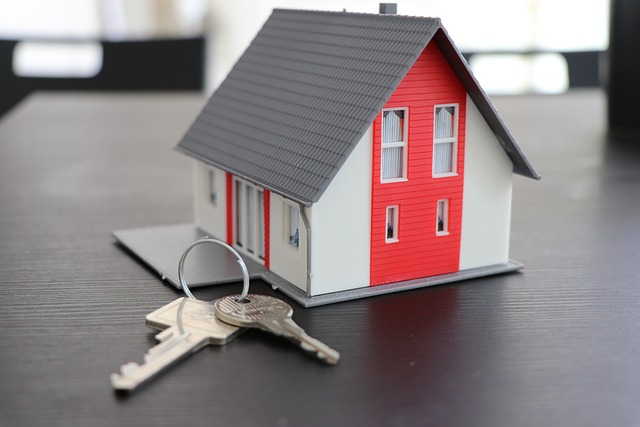Hiring a housing lawyer
Landlords and tenants are never immune to real estate law disputes. Conflicts can sometimes become complex without the help of a lawyer specialized in housing law. Legal aid, representation before the district court, protection of rights – the lawyer or legal advisor provides a range of services to help you better understand the procedure and assist you in resolving the dispute between landlord and tenant. Here’s how it works.
A reminder of the reciprocal obligations of landlords and tenants
What are the landlord’s rights and obligations?
The landlord has the right to collect his rent in full. Payment takes place on the first day of each month. Late payments may be grounds for eviction.
The landlord also has the right to access and visit the property if the tenant expresses his intention to leave at the end of the lease. In this case, the landlord schedules visits between 9 a.m. and 9 p.m., after giving the tenant 24 hours’ notice.
After giving notice, the landlord can reclaim the property for a legitimate reason: repossession of the property to accommodate the landlord himself, a dependant, children or parents.
In terms of obligations, the landlord has a duty to provide his tenant with clean accommodation in good condition, in accordance with the French Civil Code. Insalubrious housing cannot be rented.
The landlord is also responsible for the peaceful enjoyment of the property by the tenant throughout the term of the lease. The landlord is responsible for all necessary repairs, with the exception of maintenance repairs, which are the responsibility of the tenant.
To summarize :
Owner’s rights:
-
- Own, use and sell the property
-
- Receive rent or income from the property
-
- Claim damages for breach of lease terms
-
- Modify and improve the property
Owner’s obligations:
-
- Provide accommodation in good condition and in compliance with safety standards
-
- Repair and maintain the property
-
- Comply with local and provincial laws and regulations
-
- Respect tenants’ rights, such as the right to privacy and tranquility.
What are the tenant’s rights and duties?
The tenant is entitled to peaceful enjoyment of the dwelling. This means that the landlord cannot enter the dwelling unannounced or on an ad hoc basis without prior notice.
The tenant has the right to remain in the dwelling throughout the term of the lease. Once the contract has been renewed, he or she may also remain in the dwelling. Only serious reasons for repossession can justify eviction.
The tenant is entitled to the use of all equipment, and can invoke the landlord’s failure to comply in the event of a faulty appliance.
He does, however, have certain duties towards his landlord. Under current regulations, he must pay the agreed rent on the date stipulated in the lease. He must use the property with care and responsibility. He also has a duty to carry out any repairs that may be required. If the lease is terminated, the tenant must return the property to its original condition.
Tenant’s rights:
-
- Peaceful enjoyment of the leased property
-
- Receive a home that is in good condition and complies with safety standards
-
- Receive notice of rent increase or lease termination on time
-
- Request property repairs or improvements
Tenant’s obligations:
-
- Pay rent on time and in full
-
- Comply with local and provincial laws and regulations
-
- Respect the terms of the lease
-
- Maintain the property in good condition and return it in good condition at the end of the lease

What are the causes of housing law disputes?
The relationship between landlord and tenant deteriorates as a result of noise disturbances, breach of a current lease or non-payment of rent. Here are the main causes of disputes between landlords and tenants.
Noise disturbance
Under article 1854 C.C.Q., the landlord is obliged to guarantee peaceful enjoyment of the premises to his tenants. This obligation also applies to tenants. No resident of the building has the right to disturb the enjoyment of another resident’s property.
In a condominium, the landlord may apply to the Tribunal Administratif du Logement (TAL) to terminate the lease of the person responsible.
Inventory of fixtures
Neglect by the tenant or landlord of the inventory of fixtures, leading to unhealthy living conditions (mold, foul odors, high humidity, vermin invasion, water damage, etc.), is a recurring source of conflict.
The complainant can resolve the problem amicably (through dialogue or mediation). If informal attempts are unsuccessful, legal action can be taken.
Failure to pay rent
Unpaid rent is always a source of deterioration in landlord-tenant relations. Under article 1903 C.C.Q., the tenant must pay rent on the first of each month. Under article 1971 of the Civil Code of Quebec, the landlord has the right to request termination of the lease if the rent is more than 3 weeks late.
The tenant can avoid litigation by paying the rent plus late fees and interest.
Tenant departure during the lease term
A tenant may leave the premises without notifying the landlord, and without giving any reason for doing so. Article 1975 of the Civil Code of Quebec sets out a list of conditions for the automatic termination of a lease:
-
- a precipitous departure by the tenant during the term of the lease ;
-
- the tenant moving out with all his personal belongings;
-
- no notification to the landlord of the tenant’s intention to leave;
-
- evasion of obligations.
In this case, the TAL will be called upon to rule on the decision to be taken if the tenant reappears.
What recourse do I have in the event of a dispute?
For any reason whatsoever, the owner or tenant can initiate amicable or legal proceedings.
Amicable procedures
The amicable procedure is recommended for resolving rental disputes. The 2 parties open a dialogue and find a mutually acceptable solution.
The parties concerned are faced with 2 alternatives: they can turn to the Commission Départementale de Conciliation (CDC) or the conciliateur de justice. The CDC can intervene in all types of landlord-tenant disputes. The conciliateur de justice intervenes only in disputes caused by unpaid rent.
Litigation procedures
The plaintiff goes to the district court to take his landlord or tenant to court. With the help of a lawyer, he or she draws up a summons to appear and delivers it to the defendant via a bailiff.
Finally, 2 months later, the 2 parties are summoned to the district court to attend a hearing. The court will decide on the outcome of the dispute.
As a last resort, the landlord can initiateeviction proceedings against tenants on serious grounds: repeated late payment of rent, neighborhood disturbances, lack of home insurance, non-payment of security deposit, etc

Seek the assistance of a housing lawyer in a real estate dispute
In a conflictual relationship between landlord and tenant, the presence of a real estate lawyer is indispensable for several reasons.
How can a lawyer help?
Choosing a real estate lawyer seems complex, given the diversity of options. Online reviews and digital directories will help you find the right provider for your legal aid.
The expert will help you assert your rights as an owner or tenant before the district court. The legal professional can provide you with a reliable service. The service provider analyses your situation with a fine-tooth comb to identify possible solutions.
Why use the services of a specialized lawyer?
Calling on the services of a lawyer means :
-
- expert advice on real estate and housing law;
-
- get answers to your legal questions;
-
- resolve your dispute in no time;
-
- increase your chances of success at the hearing.
The professional intervenes at every stage of your case, from the very beginning of the conflict and throughout the legal process.
Conclusion
Calling on the services of a competent housing lawyer maximizes your chances of success in court. He or she will provide you with all the help you need for your case: analyzing the situation, representing you in court, negotiating an out-of-court settlement, drafting a legal opinion…
Contact us
-
- “Rights and responsibilities of landlords and tenants in Ontario” from the Ontario government: https://www.ontario.ca/fr/page/droits-et-responsabilites-des-proprietaires-et-des-locataires-en-ontario
-
- “The Civil Code of Quebec” from the Quebec government: https://www.educaloi.qc.ca/capsules/les-obligations-du-proprietaire
-
- “Rights and Responsibilities of Landlords and Tenants in British Columbia” from the Government of British Columbia: https://www2.gov.bc.ca/


